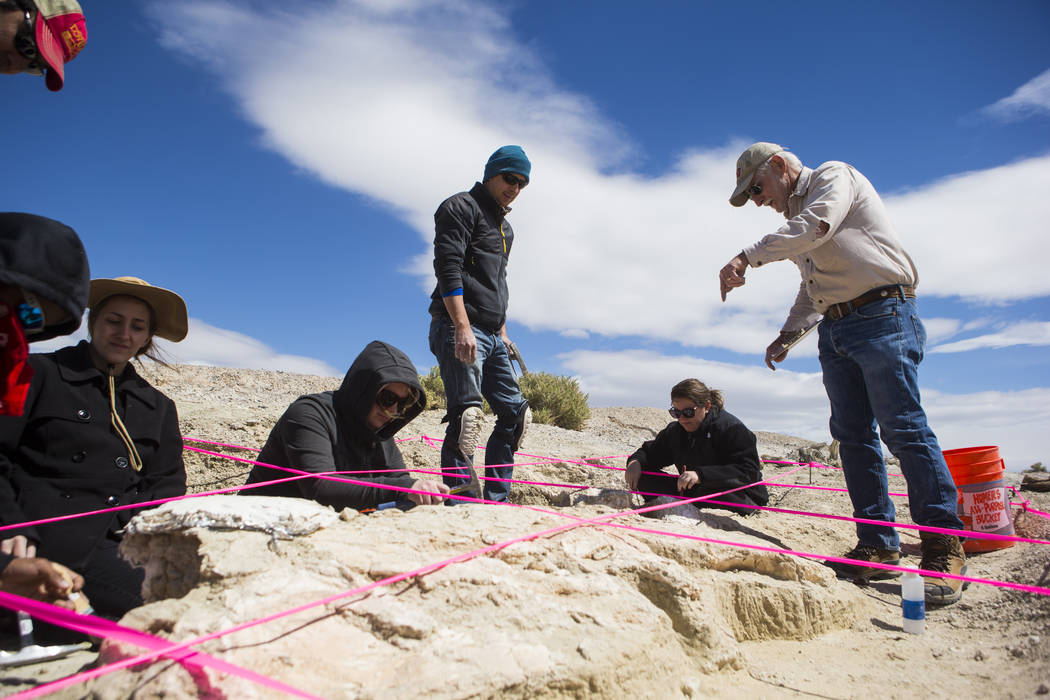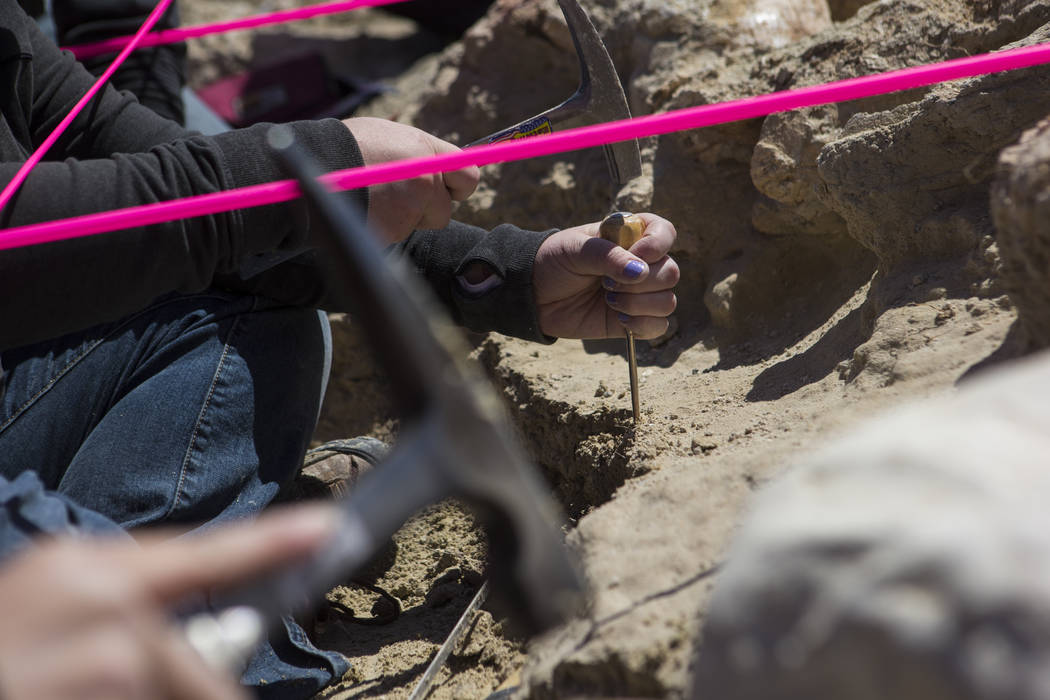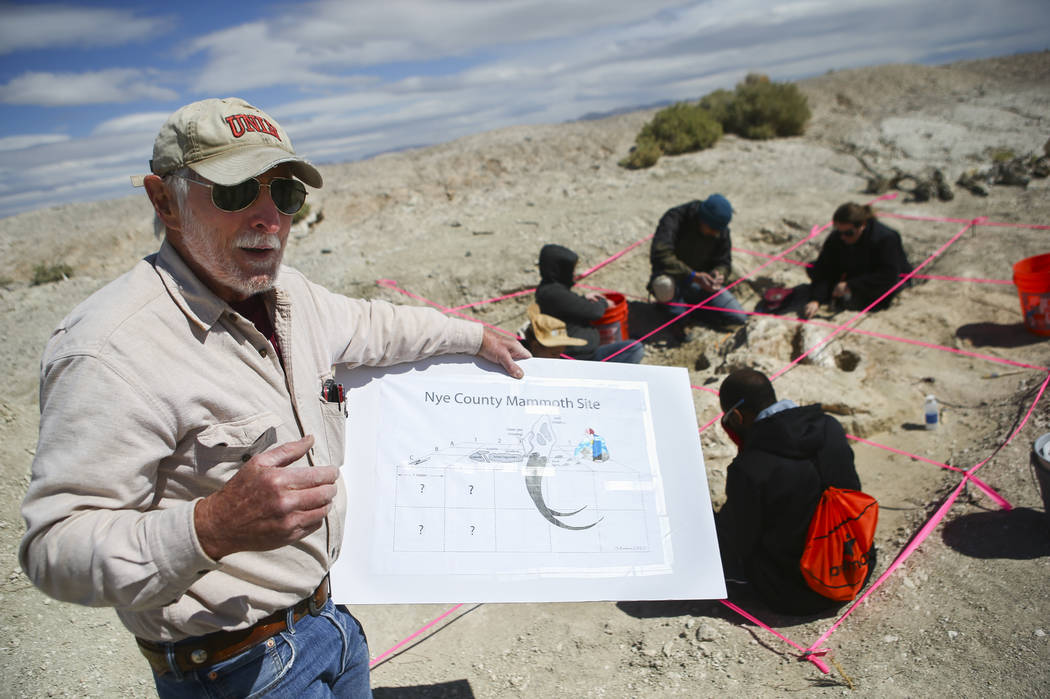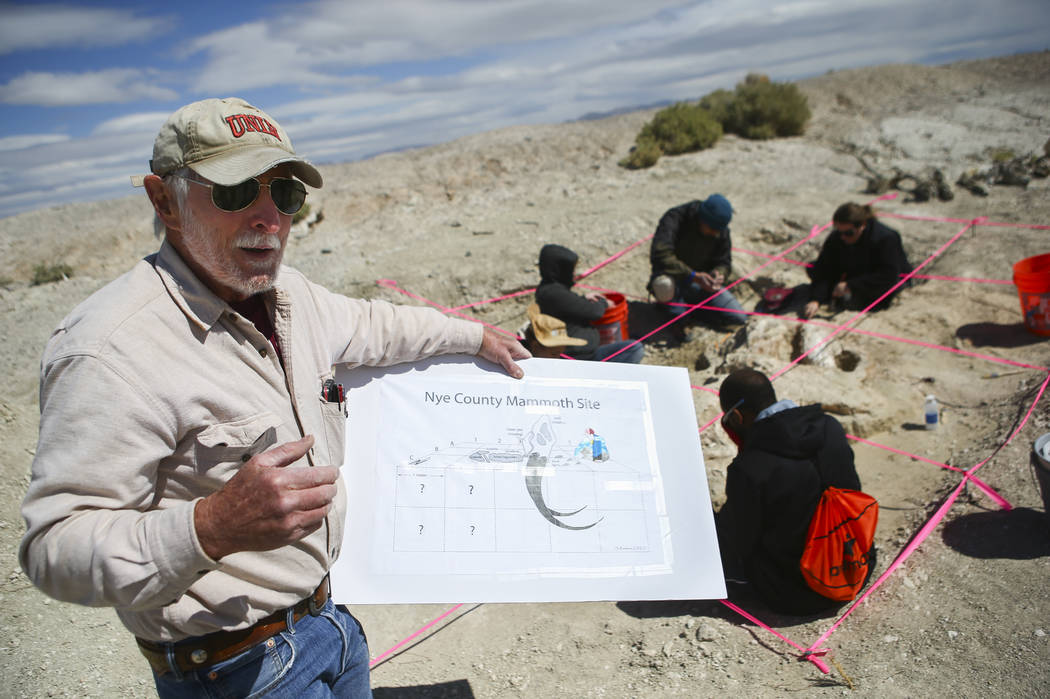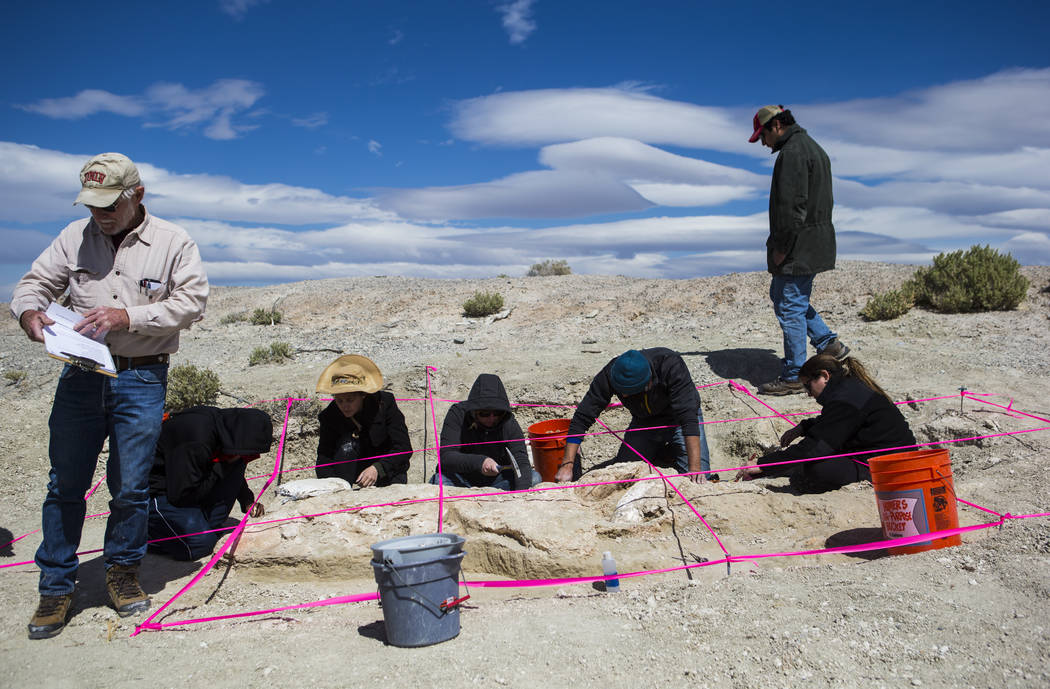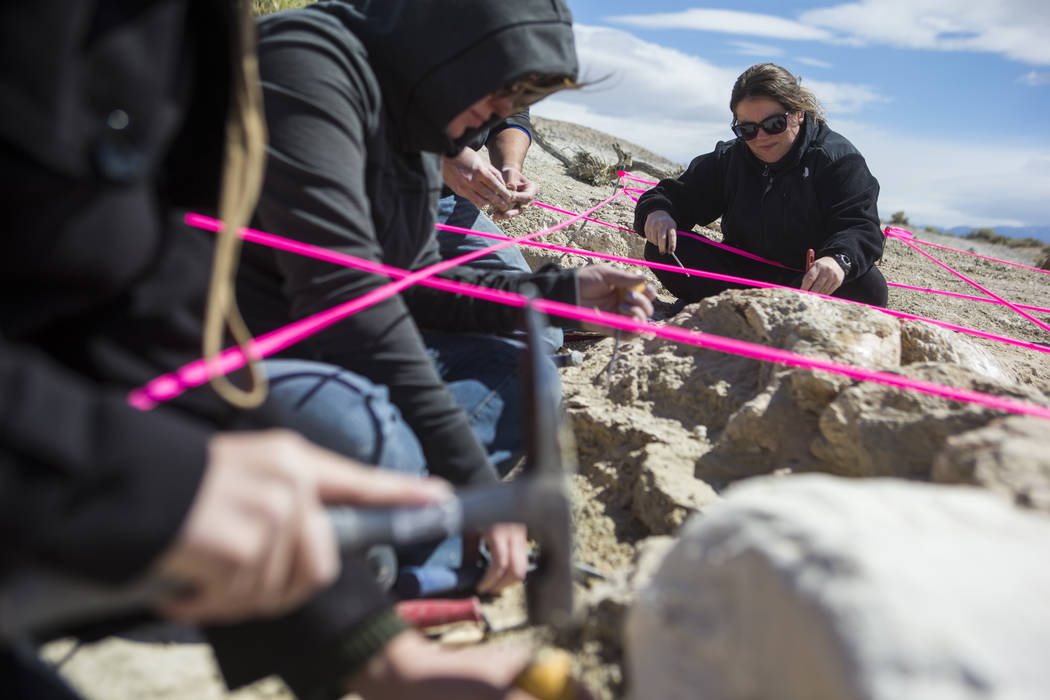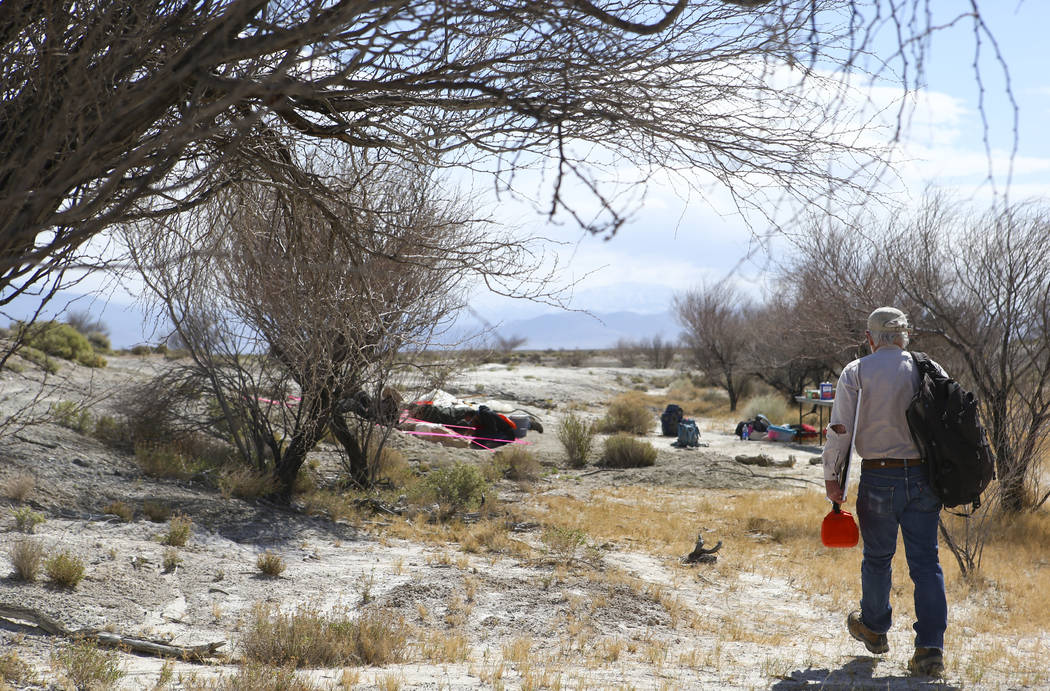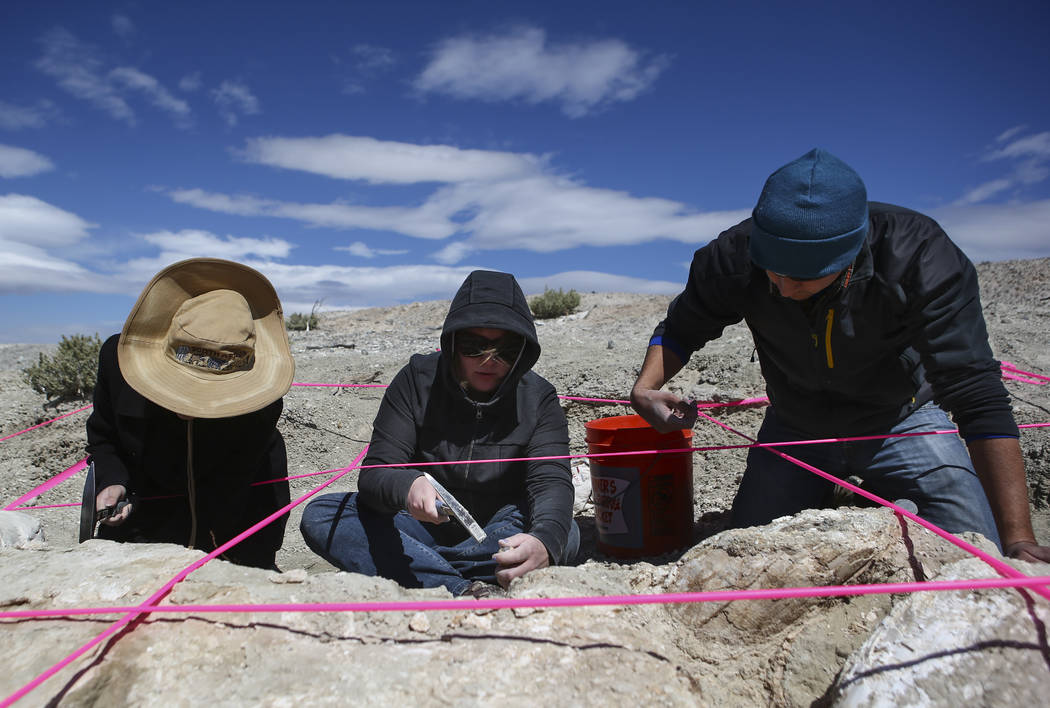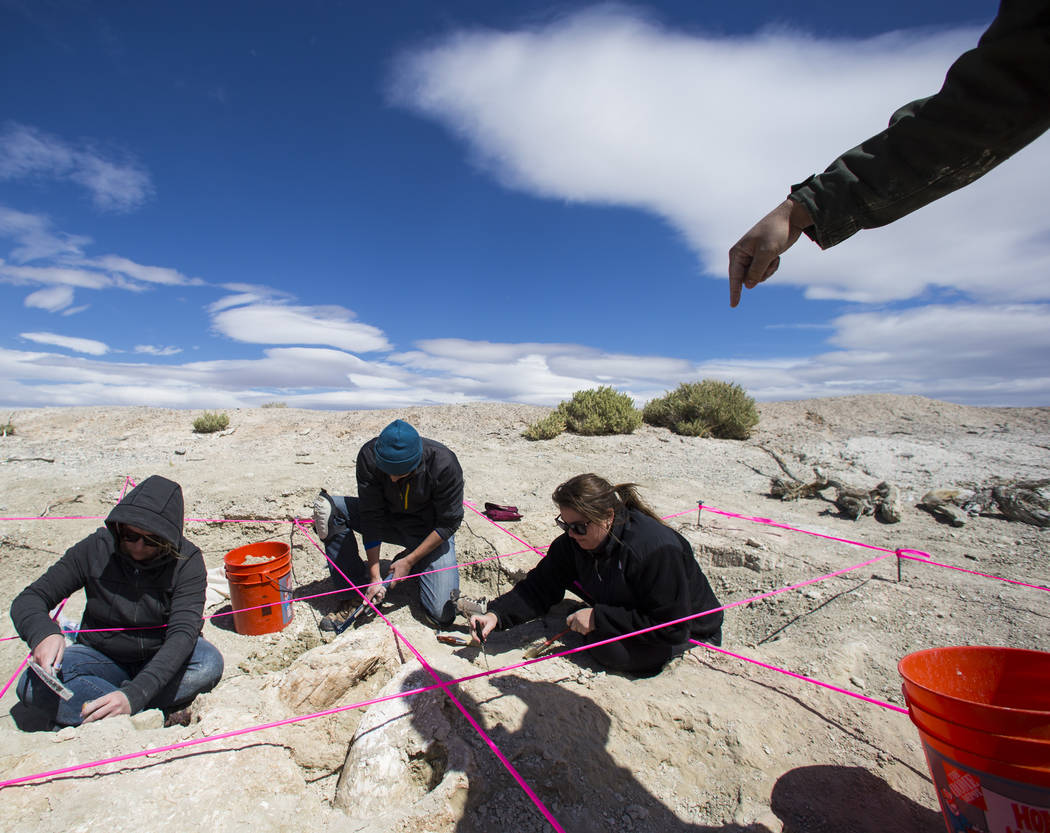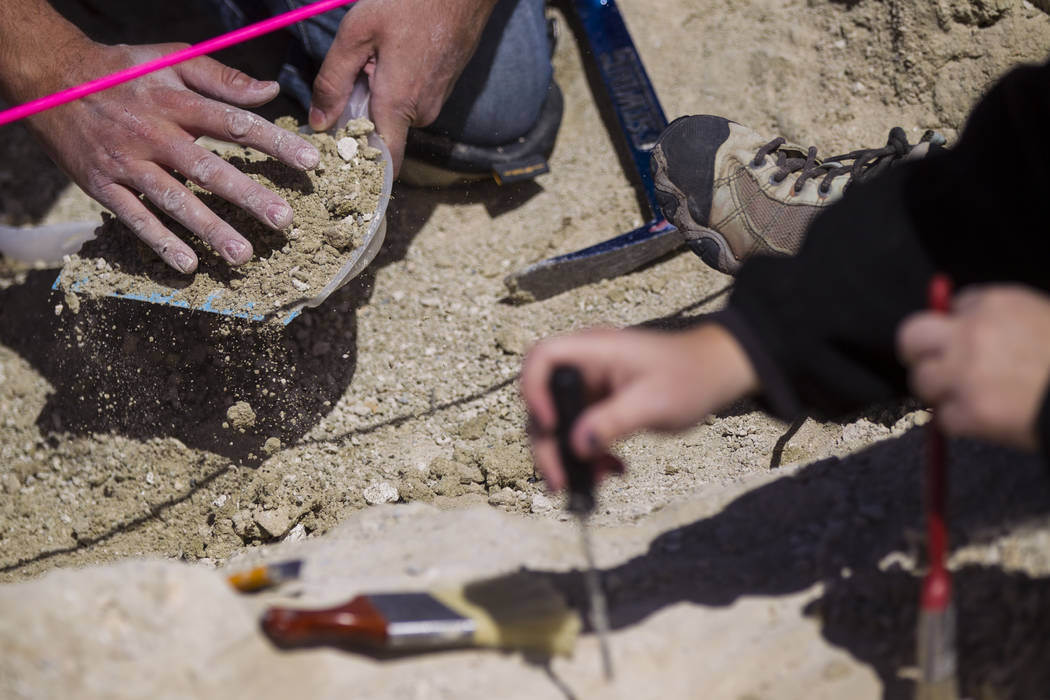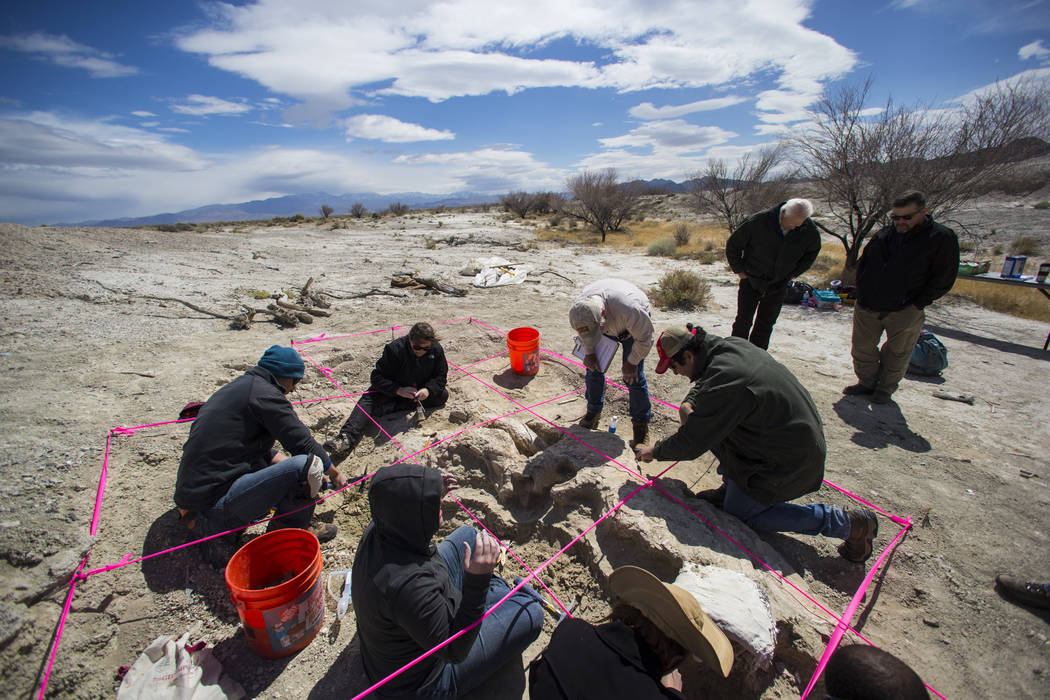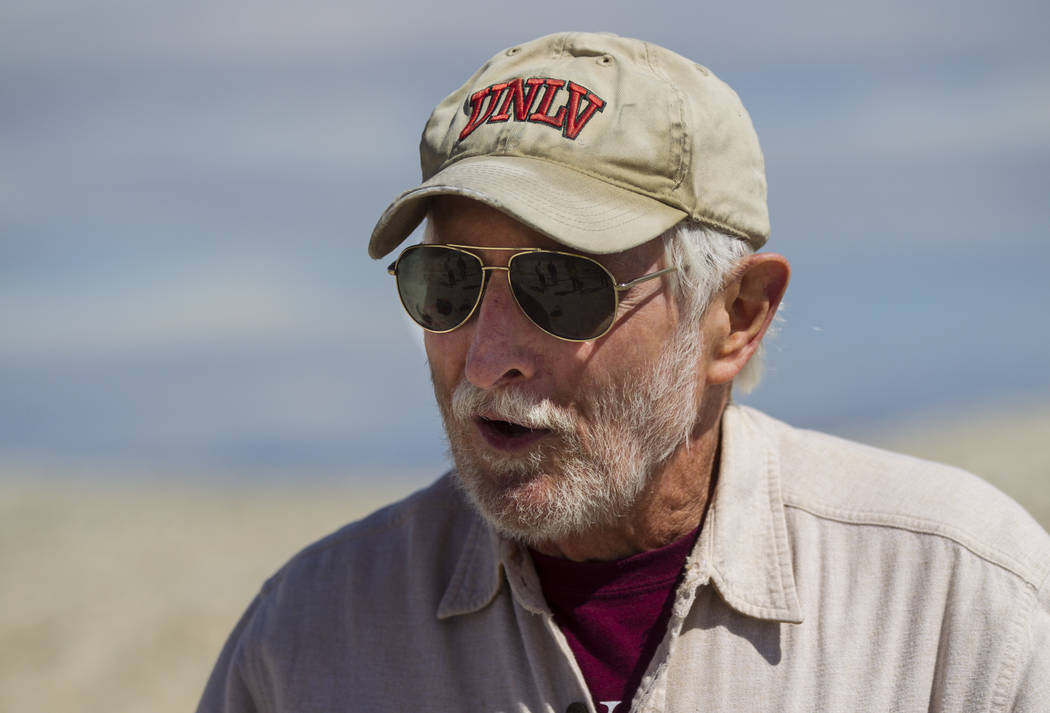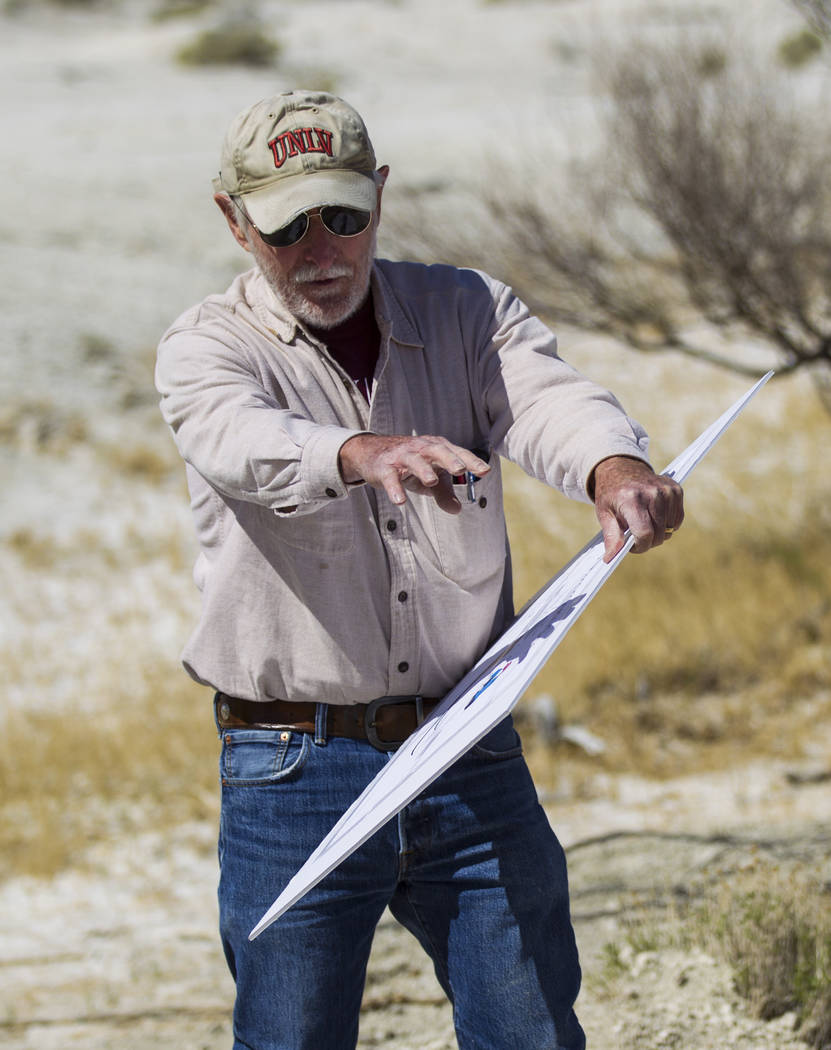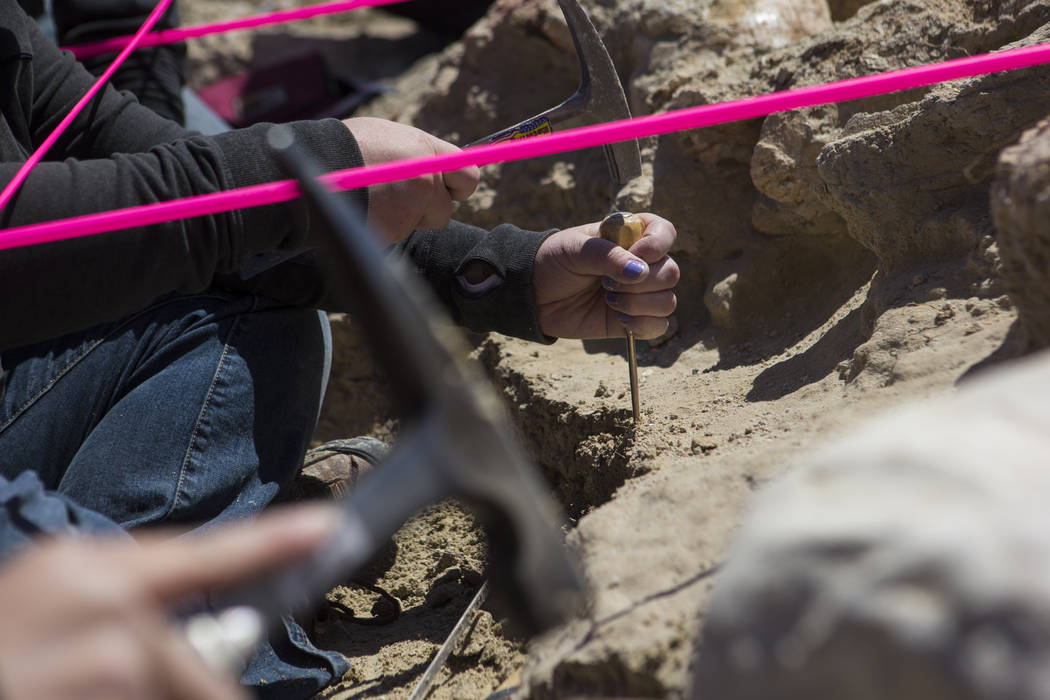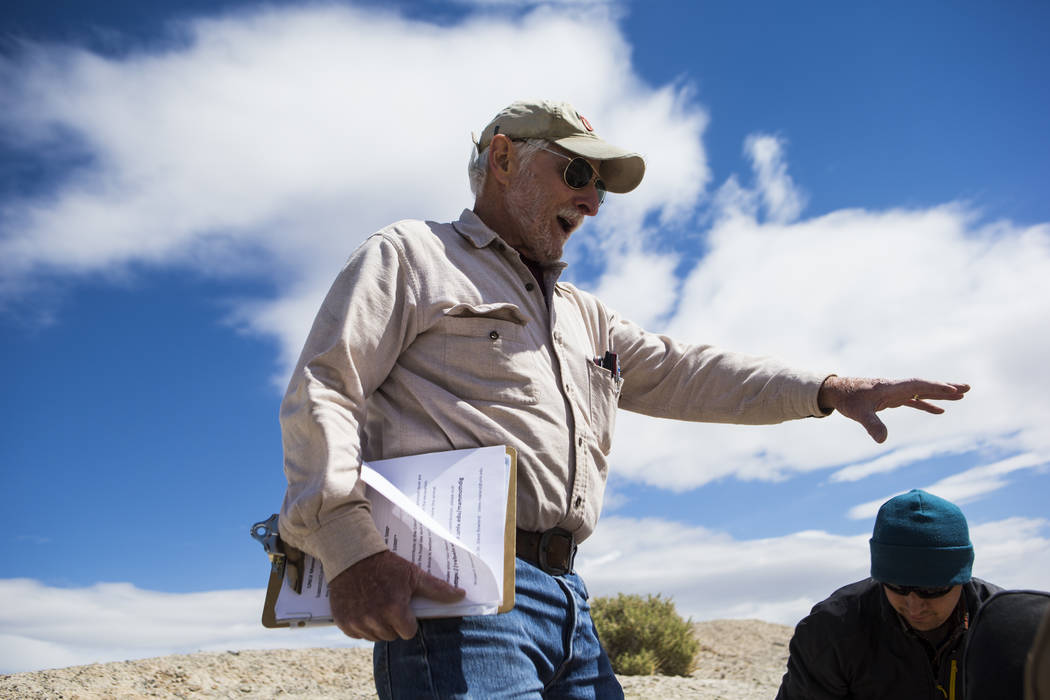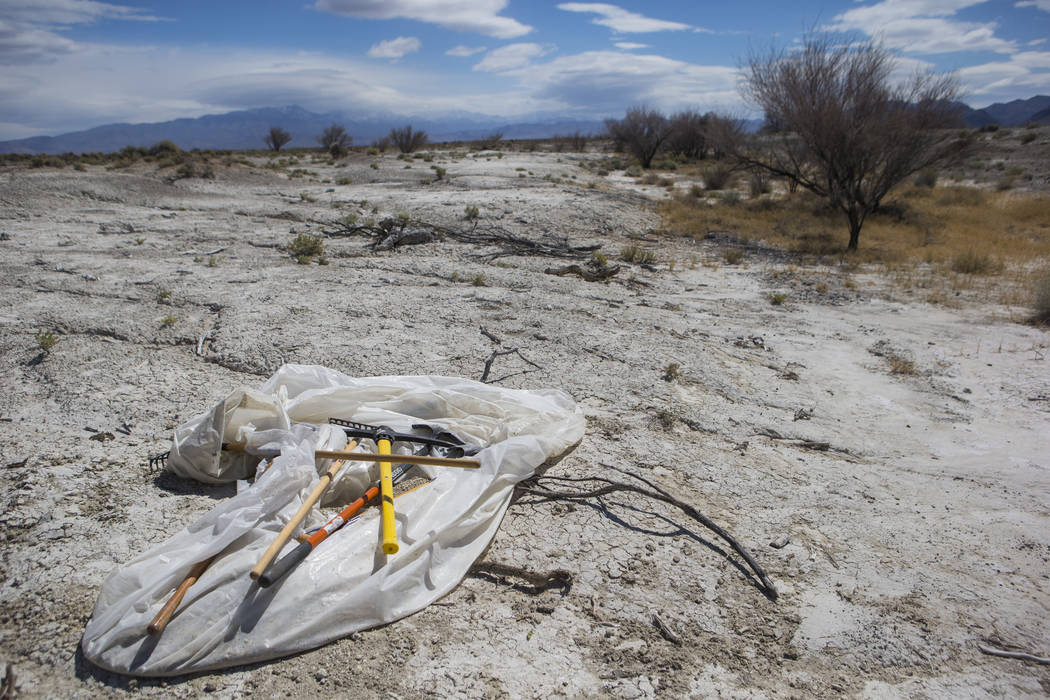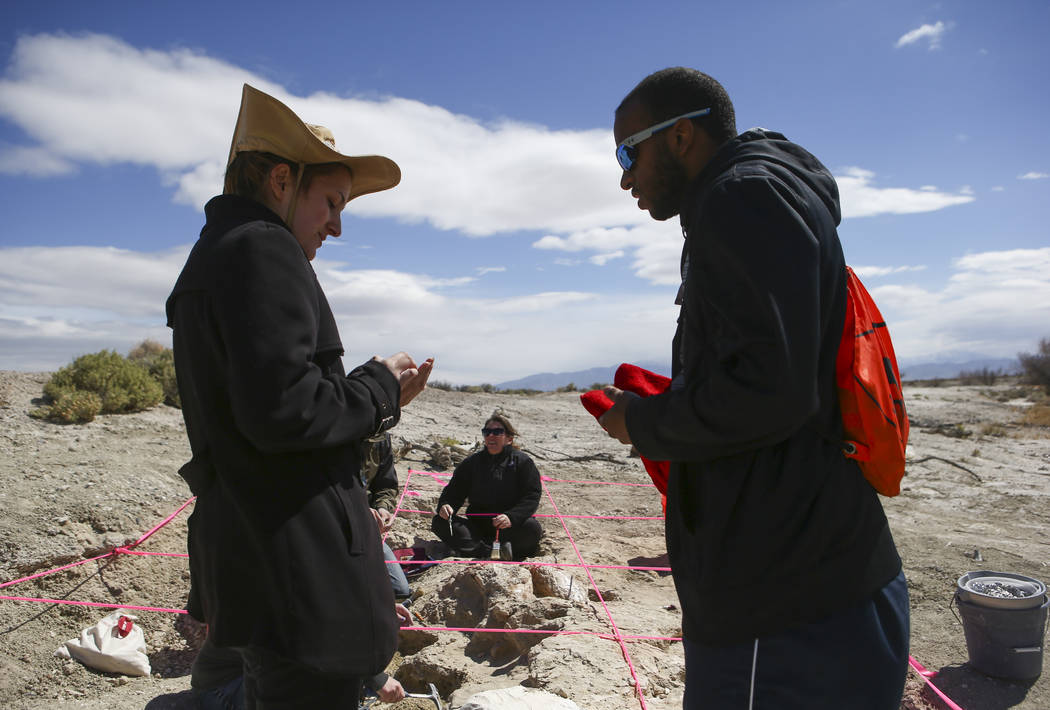Mammoth dig by UNLV unearths ice age bones in Nevada’s Nye County
AMARGOSA VALLEY
On a chalky, windblown mound about 100 miles northwest of Las Vegas, researchers brush and chisel away dirt surrounding a pair of curved tusks sticking straight down into the ground.
As mammoth discoveries go, this one is pretty big.
“The tusks are huge, so it was a full grown animal, and it was a male,” said paleontologist Steve Rowland.
The longtime UNLV geology professor is leading an excavation of the fossilized Columbian mammoth at a remote, undisclosed site on federal land in Nye County.
The site was discovered about seven years ago by a local man who noticed a piece of bone sticking out the ground while riding his motorcycle in the area.
Rowland and his students began digging up the extinct ice age creature in November as a class project.
The work is now being done by a small team of Rowland’s current and former students, who come out on weekends twice a month or so.
MUSEUM BOUND
So far, they have uncovered portions of two large tusks, two shoulder blades, some vertebrae and miscellaneous bone fragments.
Rowland said the dig will likely last several more weeks at least, though the exact time line depends on what they find as they scratch around the site with small picks, rock hammers, paint brushes and their hands.
The work is being done under a permit from the federal Bureau of Land Management. All the fossils collected will go to the Las Vegas Natural History Museum for study, preservation and display.
“Scientific excavation is a slow process,” said Mark Boatwright, an archaeologist for the BLM in Las Vegas, during a visit to the site Friday.
“It needs to be to make sure you’re not ruining anything,” Rowland added. “Getting it out of the ground is only the first step.”
Radiocarbon dating and other laboratory tests — including CT scans of the tusks — should tell them more about the animal, such as how long it lived and possibly how it died.
Based on the testing so far, the bones appear to date back about 20,000 years to what scientists call the “last glacial maximum,” when the climate in Southern Nevada was wetter and colder than at any point during the past 100,000 years.
“This would have been just a huge, huge marshy area that was very, very wet,” Rowland said, motioning to the dry, scrub-covered desert surrounding the dig site.
‘IT’S RARE — AND A TREASURE’
The Columbian was the largest species of mammoth that ever lived, weighing in at about 22,000 pounds and measuring up to 13 feet tall at the shoulder.
They disappeared forever about 11,000 years ago for reasons scientists continue to debate, Rowland said.
This particular mammoth would have shared its unpeopled swamp with camels, horses, bison, ground sloths, dire wolves and saber-tooth cats.
Rowland said this is the first mammoth found in the general vicinity, though other fossils of the elephantlike creature have been unearthed within 100 miles of the site, including one found last year along U.S. Highway 95 west of Indian Springs and several at Tule Springs Fossil Beds National Monument at the northern edge of the Las Vegas Valley.
“Any time you find them I think it’s rare — and a treasure,” he said.
What makes this discovery unique is the position in which the mammoth was found.
“I’m fairly certain this animal died standing up. Its head went straight down into the ground and its skeleton was preserved that way somehow,” Rowland said.
His guess is the animal died in a “fairly deep pond or a lake,” and its remains sank down to the bottom, burying its tusks vertically in what is now about 6 feet of dirt.
“That’s our working hypothesis anyway,” Rowland said.
“That’s part of the fun of this. As you go along the story gets more and more interesting.”
Contact Henry Brean at hbrean@reviewjournal.com or 702-383-0350. Follow @refriedbrean on Twitter.
How to get your hands dirty
If you're not content to simply read about UNLV's mammoth dig in southern Nye County, you can actually take part in it — for aprice.
Starting Saturday, the first day of Nevada Paleontology Month, the research team is launching a crowdsourced fundraiser to helppay for the work.
A "Columbian mammoth level" donation of $500 or more gets you a trip to the site and a chance to assist with the excavation. Chipin $1,000 or more, and you get to help with the dig and name the specimen once its collected.
UNLV professor and paleontologist Steve Rowland said the members of his excavation team are all unpaid volunteers, but they needmoney to pay for transportation, laboratory testing and any special equipment that might prove necessary. "We may have to have acrane come out and lift something out of here," he said hopefully from the dig site Friday.
Rowland hopes to raise about $8,000 for the project.
Donations are tax deductible and can be made through the UNLV Rebel Raiser website.



